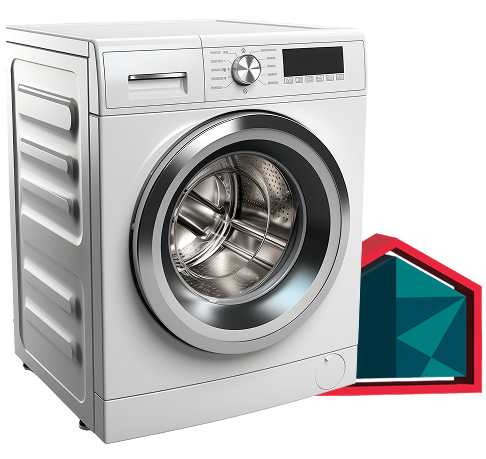Extended warranties only cover one item. Liberty Home Guard protects all your appliances and systems under one simple plan.
If it breaks, we’ve got you covered—no matter the brand.
GE dryer not heating? Follow the steps below to troubleshoot common issues like a blown thermal fuse, faulty heating element, or malfunctioning thermostat."



When your dryer isn't heating up, certain repairs are more commonly required than others. Below are the most frequent fixes:
If your GE dryer runs but doesn’t heat, the issue could be caused by several factors. Common causes include a blown thermal fuse, a broken heating element (for electric models),faulty gas valve coils (for gas models),or malfunctioning thermostats. Additionally, power supply issues, clogged venting, or a malfunctioning control board could also be to blame. Start by checking the thermal fuse, heating element, and airflow to pinpoint the issue.
If the drum of your GE dryer turns but the clothes stay cold, the heating element could be the problem. To test the heating element, unplug the dryer and access the element (usually found behind the drum or rear panel). Use a multimeter to check for continuity. If there’s no continuity, the heating element is broken and needs replacing. This is a relatively simple repair for DIYers who are comfortable working with electrical components.
Yes, if your GE gas dryer isn’t heating, faulty gas valve solenoids are a common culprit. These solenoids open the gas valve to allow gas to reach the burner. If the solenoids are damaged or malfunctioning, the burner won’t ignite. You can test the solenoids using a multimeter, and if they’re defective, they should be replaced as a set. Replacing the gas valve coils is a moderately simple task, but ensure you have the correct parts for your specific model.
If you’ve checked the thermal fuse, heating element, venting, and gas valve solenoids (for gas models),and your GE dryer still isn’t heating, the issue could be with the control board, timer, or a power supply issue. If the control board or timer is malfunctioning, these components should be replaced by a professional. Additionally, check the power supply to ensure that the dryer is getting the required 240V (for electric models). If you’re unable to identify or fix the issue, it's best to contact a licensed technician for further diagnosis and repair.
Homeowners across the country recommend Liberty Home Guard Home Warranty above all
others.
Don’t just take our word for it—Liberty Home Guard Reviews speak for themselves!


